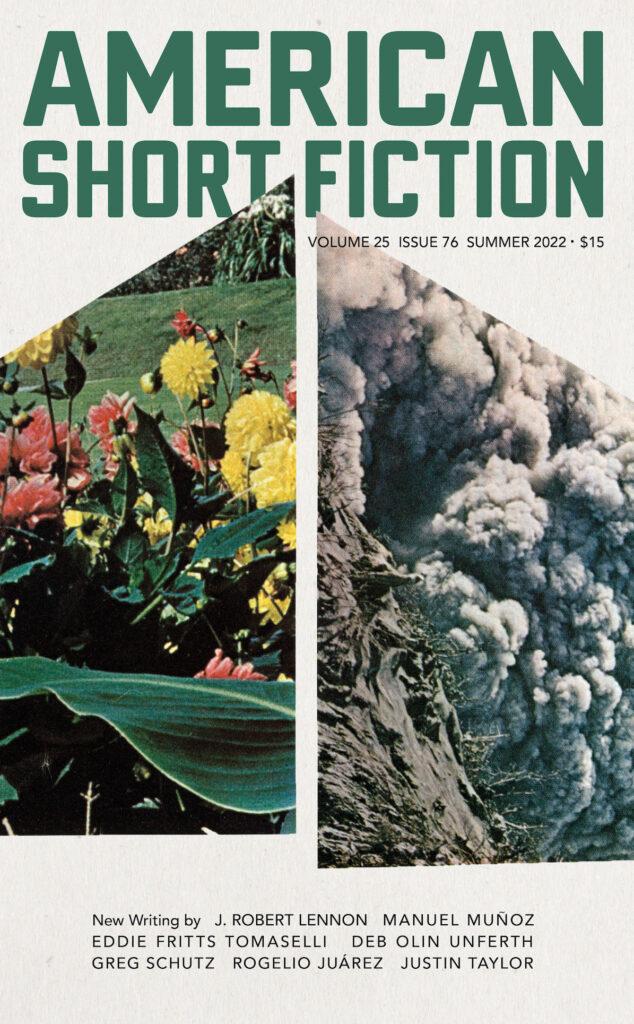Magazine Review: American Short Fiction Summer 2022 edited by Rebecca Markovits & Adeena Reitberger
The literary magazine is still alive in America, though I will not say “well” as I have no idea how many people read them. American Short Fiction, an Austin, Texas-based magazine, has been running since 1991. It is, as the title suggests, dedicated to short stories. I ran across this issue in a bookstore, so let’s see what it has between the pages.

The editor’s note is dedicated to Joe W. Bratcher III, owner of the Malvern bookstore in Austin, who’d recently passed away.
“Pingüino” by J. Robert Lennon starts the issue off with a tale of an emergency medical technician who finds himself in possession of the title creature after the death of a patient. Despite the critter’s name, it’s not clear if it’s a penguin (probably not) or even a bird. An effort to find out what Pingüino is, or at least how to care for it, leads Hugo into a torrid affair with a pet shop employee. But does Ahab want him, or his pet? I’d have to put this down in the category of “weird tale” as the exact nature of the cryptid is never explained, and may indeed be irrelevant.
“What Kind of Fool Am I?” by Manuel Muñoz concerns Bea, a girl from a small town near Corpus Christi, whose younger brother Teo is yearning to be anywhere else than that town. At least partially because he’s gay. The first time he runs away from home at sixteen, Bea can guess where he’s gone. But he keeps running further and further away, while Bea has to take care of her parents and fetch him back when he gets in too deep. This costs her a potential lover, and she begins to wonder if it’s worth it. I think this is the best story in the issue.
“Bogie Draw Gunnie” by Eddie Fritts Tomaselli is set in a post climate disaster Wyoming, with a protagonist who manipulates weather control drones while seeking romantic partners in their spare time. This one reminded me a lot of late Seventies New Wave science fiction, with its jargon, semi-random events, mish-mash of technology and magic, and so forth. It does have one of the more upbeat endings in this issue.
Deb Olin Unferth contributes four very short pieces that may or may not be related. A woman walks through an airport, a storm passes, a trip to Disneyland is miserable, and humanity passes from the Earth. So-so. The storm piece in particular feels like that modern poetry I don’t get.
“A High School Production of Titus Andronicus” by Greg Schutz is not so much about the play itself so much as how a bit part is one of the highlights of the protagonist’s life in between the Gulf War and the War of Terror. This one won a prize, though I didn’t find it that good.
“Send Good Vibes” by Rogelio Juárez concerns a Chicano man in an Arizona prison for vehicular homicide, year five of seven. His cellmate mysteriously disappears one night, but the guards don’t seem to notice. Eventually, the cellmate returns, and we learn his secret. But at the end the protagonist decides not to discover if the cellmate is telling the truth or crazy. Life in prison is hard, but there’s the possibility of an okay existence once his sentence is done. Also a good story.
“In the Panhandle” by Justin Taylor takes place in a small city in the panhandle area of Texas. A man on a date with a mayoral candidate has a confrontation with a wheelchair user who’s drunk and hitting on women who aren’t interested. He also meets the man later and helps him get into his truck. Then the man falls in love with the bartender. There’s a zoo mentioned, but it’s mostly thematic.
The slightly regional flavor of this issue (don’t know if it’s an ongoing thing for the magazine) helped set it apart from other literary magazines I’ve read. That said, it reminded me why I primarily read genre magazines, as they tend to have a more familiar structure in the stories that gives me a clear picture of what the story’s point is.
If you like modern fiction, consider buying an issue so that the tradition of literary magazines with slightly different focus will live on.

